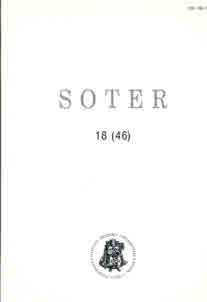Sakramentinės teologijos tendencijos XIX a. pabaigoje ir XX a. pradžioje
The tendencies of sacramental theology at the turn of the 19th and 20th centuries
Author(s): Rimas SkinkaitisSubject(s): Christian Theology and Religion
Published by: Vytauto Didžiojo Universitetas
Keywords: sakramentai; sakramentų įsteigimas; teologija; popiežius; teologas; Sacraments; establishment of sacraments; theology; the Pope; a theologian;
Summary/Abstract: Philosophical, theological, biblical and scientific renaissance, inspired by Pope Leo XIII, gave a serious stimulus for the formation of new ideas and encouraged scientific development and progress.That eventually affected and sacramental theology. The pope in his documents, with the help of new rich biblicaland patristic sources, updates sacramentology by new importan motives. The beginning of the 20th century is famous for its progress in philosophy and theology. In the analysis of the sacraments and their establishment, new historically-critical and dogma-evoliutionary methods are used, which helped to understand that not all the sacraments were directly established by historical Jesu, that they might have been the result of the apostles or their successors, who interpreted the words or gestures of their divine Master. At the time, Paris theological school contributed a lot, and one of its most prominent representatives A. Loisy. During the pontificate of Pius X, all the guidelines of Leo XIII werw rejected, and old classical scholastic categories were returned. Under the pretext of fighting modernism, all kinds of scientific progress was suspended, and theology sank into lethargy. Theology of these times, including sacramental, experienced stagnation. Refusing historically-critical methods and biblical exegesis, the official Magisterium supported Garrigou-Lagrange` s speculative neo-scholastical spirit and trend in theology, that is why sacraments, problems of their origin and significance were analysed exceptionally from the lawful, moral or often piestitic points of view. Such tendencies practically remained until the Vatican Council II.
Journal: SOTER: religijos mokslo žurnalas
- Issue Year: 47/2006
- Issue No: 19
- Page Range: 7-18
- Page Count: 12
- Language: Lithuanian

